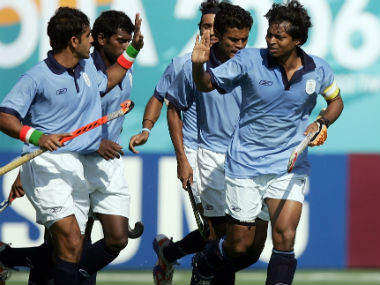Former India captain Dilip Tirkey represented the country in over 400 international matches, including three World Cups (1998, 2002, and 2006). Considered among the best defenders of his generation, Tirkey is a recipient of the Arjuna Award and the Padma Shri, besides a host of national and international honours. He spoke to Shantanu Srivastava. [caption id=“attachment_5605231” align=“alignnone” width=“825”] Dilip Tirkey (first from right) represented India in three World Cups. AFP[/caption] My first World Cup was in 1998 that took place in Utrecht in The Netherlands. It was my first major tournament after I made my debut in 1995. We finished ninth out of 12 teams, so obviously it wasn’t a successful campaign for the team, though personally, it went all right. It is indeed an honour to have played three World Cups for India. When the call-up came for my first World Cup, I was obviously a bit nervous. I was eager to do well for India; itching to perform. During my playing days, we had some brilliant individual players, but we lacked a good drag-flicker for a long time. Teams like Pakistan and the Netherlands had world-class flickers, and it showed in their results. It’s an important skill and all major teams came equipped in events such as the World Cup. Things changed after Jugraj Singh, Sandeep Singh and VR Raghunath came along. My second World Cup was in 2002, in Kuala Lumpur. We finished 10th among 16 teams. It was another disappointing campaign, and the reasons were not very different from the previous World Cup. We didn’t have good flickers, and our fitness was not there. Also, back then, if we lost one game, we ended up playing worse in the next. So it was tough to keep everyone motivated. We played five matches in the pool stages, and lost four of them. After such a result, it was natural that everyone was demoralised, and we played through that World Cup with very little morale. Therefore, I always believe that motivation and momentum are very important in World Cups. In 2006, I was the captain of the side. It was a very young team, and at 28, I was the oldest in the team. I was battling injuries when this World Cup came about. Unfortunately, we were again short of a good drag-flicker. Jugraj had emerged as a promising talent, but after his car accident in 2003, we didn’t have anyone. A few years later, Sandeep came about. But he met with an unfortunate accident before we were to leave for the World Cup, which meant our drag-flick cupboard was again vacant. There were players like Gagan Ajit Singh and Deepak Thakur, but we lost a lot of advantage due to the absence of a short-corner specialist. Things are a lot better now. We have flickers like Varun Kumar and Harmanpreet Singh, and they must work to improve their conversions. It will be a major factor in this World Cup, and I can tell from my experience that almost all the important matches are decided by short-corner specialists. Historically, we have not done too well at World Cups, and the primary reason for that is fitness. Today we are World No 5, but for a long time, our fitness was not up to the mark. We didn’t pay any attention to recovery and diet. Sports science has really come a long way over the years, and I personally feel that the role of a trainer is more important than coach in modern hockey. Personally speaking, I could have played for two more years, but there was no proper recovery process back then. The ligaments of both my ankles were damaged really badly; one of my legs was 100 percent gone, the other was 80 percent damaged. Sports science was not that developed or accessible then. Everytime I returned from injury, even the slightest of pressure on my legs would injure my ankle again and force me to sit out for 10-15 days. This stop-start recovery was quite frustrating. By 2008-09, I had crossed 30 and getting in and out of team due to injuries would not have helped anyone. So in 2010, I decided to call it a day, but had my injuries been properly addressed in 2005-06, I could have played more. India will be without Sardar Singh in this World Cup, and I think an experienced player like him should have been part of our team. The history of our hockey suggests that almost all experienced players were pushed out, but if a player is fit, he should be played. The match against Malaysia in the Asian Games was a collective failure and not Sardar’s fault alone, and India played their worst game of the year. The combination of senior and junior players is a must in such high-pressure events, and I hope India get that right.
India’s legendary hockey player Dilip Tirkey recounts his World Cup journey in this exclusive conversation with Firstpost.
Advertisement
End of Article


)

)
)
)
)
)
)
)
)



